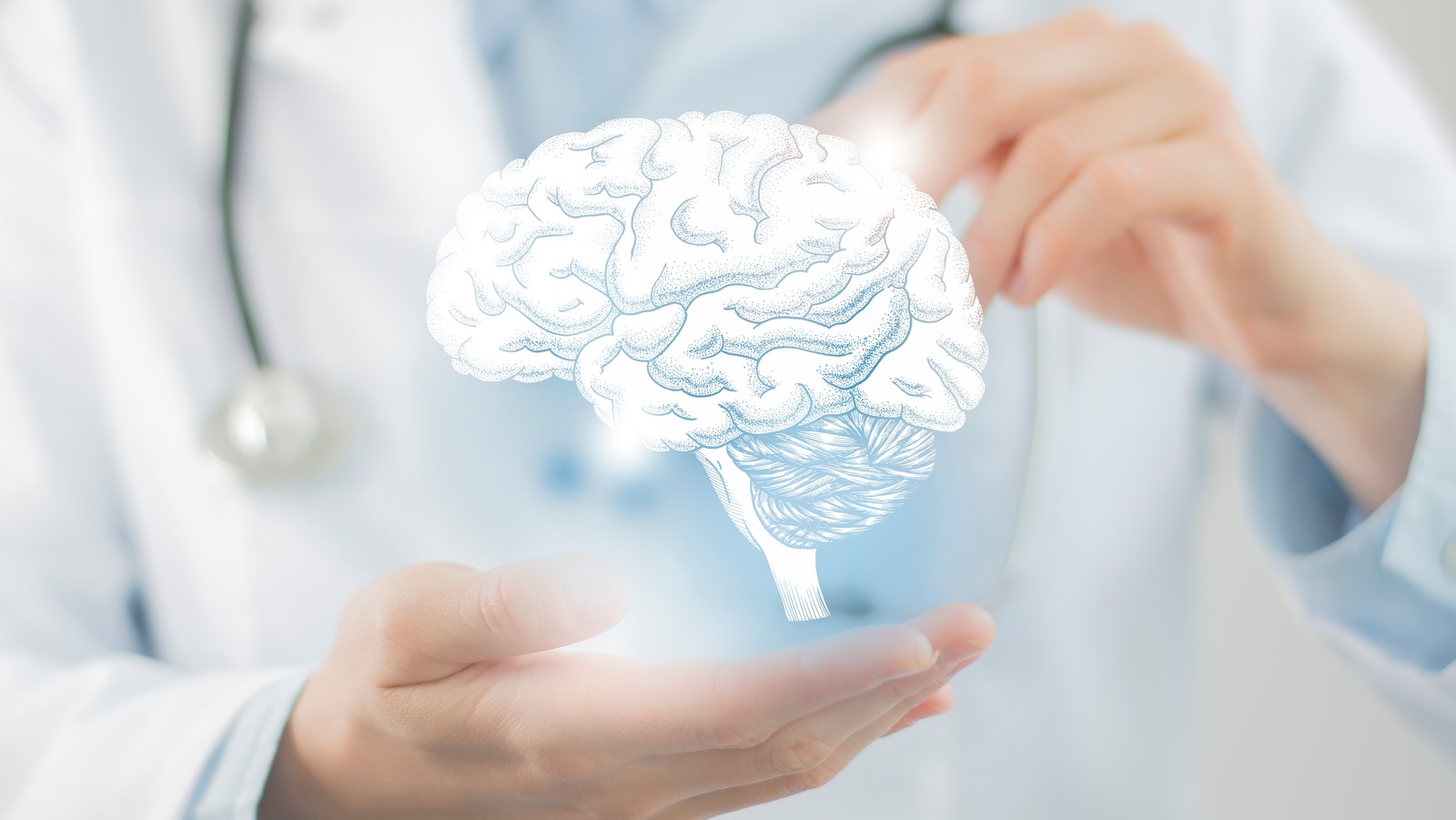Improve Your Brain Health to Prevent Cognitive Decline
Unlock Your Brain’s Potential: A Functional Medicine Perspective
In the wake of a sedentary era, our brains, like our bodies, demand attention. As expert registered dietitian nutritionists and functional medicine practitioners, we emphasize the critical role a healthy brain plays in our overall well-being. Your brain, the command center of your body, underpins communication, memory, decision-making, and emotional regulation, making its vitality paramount. Our brain is arguably our most valuable organ, don’t you agree?
The Rising Threat of Cognitive Decline
Alarming statistics reveal that millions face Alzheimer’s dementia, a number set to surge without intervention. While exercise maintains physical health, preserving mental acuity demands attention. Here are our functional medicine insights to safeguard your brainpower:
4 Tips for a Healthier Brain
1 – Stress Reduction Techniques
Chronic stress wreaks havoc on cognition. Embrace mindfulness, meditation, or the calming embrace of yoga to nurture your brain and alleviate the strain on your prefrontal cortex. These practices, alongside supportive connections and therapeutic interventions, fortify your resilience against cognitive decline. Remember, even your brain deserves a spa day once in a while!
Here are some key stress reduction practices:
- Mindfulness
- Meditation
- Qigong
- Tai Chi
- Yoga
- Guided Imagery
- Progressive Muscle Relaxation
- Journaling
- Acupressure
- Regular physical activity
- Connecting with supportive people
- Speaking with a therapist / finding professional help
- Doing something you love
- Spending time in nature
2 – Nourish Your Gut, Nourish Your Mind
Optimal serotonin levels are pivotal for mental well-being and 75-90% of that serotinin is created in the gut. Serotonin is the main hormone that ensures our moods are balanced and we experience feelings of well-being, calmness and happiness. Having low levels of serotonin contributes to developing chronic conditions such as anxiety and depression, which can have long-term effects on our brain health. Makes sense why the gut-brain axis are so incredibly connected now, right?
Enhance your microbiome by avoiding processed foods, refined sugars, and excessive alcohol. Embrace a rainbow of fruits and vegetables and include fermented foods like kefir and sauerkraut. Supplements like anti-inflammatory turmeric and brain-calming GABA provide additional support, strengthening your mental fortress.
Your gut is like a backstage manager; keep it happy, and the show will go on smoothly!
Best Practices for a Healthier Microbiome:
- Avoiding packaged and processed foods
- Avoiding foods high in refined sugar
- Avoiding foods fried in vegetable and canola oil and using a healthier alternative such as olive oil
- Avoid alcohol
- Drinking plenty of water
- Eating a diet rich in an assortment of different colored fruits and vegetables.
- Reducing red meat intake
- Eating enough fibre, including whole grains and legumes
- Increasing consumption of fermented foods such as kefir, kimchi, sauerkraut, Kombucha, and yogurt
Supplements that Support the Brain
Rememeber, always TEST first and talk to your healthcare practitioner before taking any nutritional supplement.
- Anti-inflammatory herbs such as turmeric (aka curcumin) help to reduce inflammation in the brain
- Amino acids such as GABA, which helps calm the brain, reduce mental stress and facilitate good sleep patterns
- A good quality probiotic can help support the gut as it manufactures serotonin
- Oils high in omega-3 fatty acids such as fish oil, flaxseed oil or hemp oil help provide the building blocks for healthy brain cells
- B vitamins and folic acid help in the production of neurotransmitters
- Vitamin D is particularly important during the dark winter months. One study found that people with low levels of Vitamin D have twice the risk of developing Alzheimer’s
3 – Prioritize Restorative Sleep
Quality sleep, your brain’s reset button, demands respect. Establish a serene sleep sanctuary with a consistent bedtime routine and screen-free pre-sleep hours. Adequate, uninterrupted rest enhances emotional regulation, stress management, and hormonal balance. Remember, your brain needs its beauty sleep too! Here are our recommendations for healthy practices that promote great sleep – so that you wake up feeling refreshed every morning:
Fostering Healthy Sleep Habits
- Creating a relaxing bedtime ritual and committing to it (i.e. meditation or a hot shower)
- Going to bed at the same time every night
- Keeping your bedroom dark, quiet, cool and comfortable
- Limiting screen time before bed / no screen time for at least an hour before your bedtime ritual
- Waking up at the same time every day, including on weekends
- Avoiding caffeine after 12:00 pm
- Avoiding naps
- Avoiding late-night meals
4 – Exercise Your Mind
Challenge your brain as you would any muscle. Engage in strategic games, learn new skills, delve into languages, or immerse yourself in stimulating debates. These activities serve as mental workouts, bolstering cognitive reserves and lowering dementia risks. Who said workouts can’t be fun and mind-boggling? Here are some activities to consider integrating into your daily practice. Ideally choose more than one and switch up your practice often.
Brain-Stimulating Habits
- Play strategy games
- Do crossword puzzles, word games or Sudoku
- Learn a new skill such as a musical instrument or craft
- Learn a new language
- Read a book
- Socialize and have stimulating conversations or friendly debates with a social group
- Your journey to sustained cognitive health is multifaceted, requiring attention to stress, diet, sleep, and mental engagement. By embracing these principles, you empower your brain, ensuring it remains your greatest asset in the pursuit of a fulfilling life. And remember, a healthy brain is a happy brain; let’s keep those neurons doing the cha-cha!
References
Bernstein, Rebecca. The Mind and Mental Health: How Stress Affects the Brain. Touro University Worldwide. 2016
Bremner JD. Traumatic stress: effects on the brain. Dialogues Clin Neurosci. 2006;8(4):445-461. doi:10.31887/DCNS.2006.8.4/jbremner
Cirelli C, Tononi G. The Sleeping Brain. Cerebrum. 2017;2017:cer-07-17. Published 2017 May 1.
Clapp M, Aurora N, Herrera L, Bhatia M, Wilen E, Wakefield S. Gut microbiota’s effect on mental health: The gut-brain axis. Clin Pract. 2017;7(4):987. Published 2017 Sep 15. doi:10.4081/cp.2017.987
Evrensel A, Ceylan ME. The Gut-Brain Axis: The Missing Link in Depression. Clin Psychopharmacol Neurosci. 2015;13(3):239-244. doi:10.9758/cpn.2015.13.3.239
Scott, S.B., Graham-Engeland, J.E., Engeland, C.G. et al. The Effects of Stress on Cognitive Aging, Physiology and Emotion (ESCAPE) Project. BMC Psychiatry 15, 146 (2015). https://doi.org/10.1186/s12888-015-0497-7
Understanding the stress response. Harvard Health Publishing. 2020 https://www.health.harvard.edu/staying-healthy/understanding-the-stress-response
Worley SL. The Extraordinary Importance of Sleep: The Detrimental Effects of Inadequate Sleep on Health and Public Safety Drive an Explosion of Sleep Research. P T. 2018;43(12):758-763.






